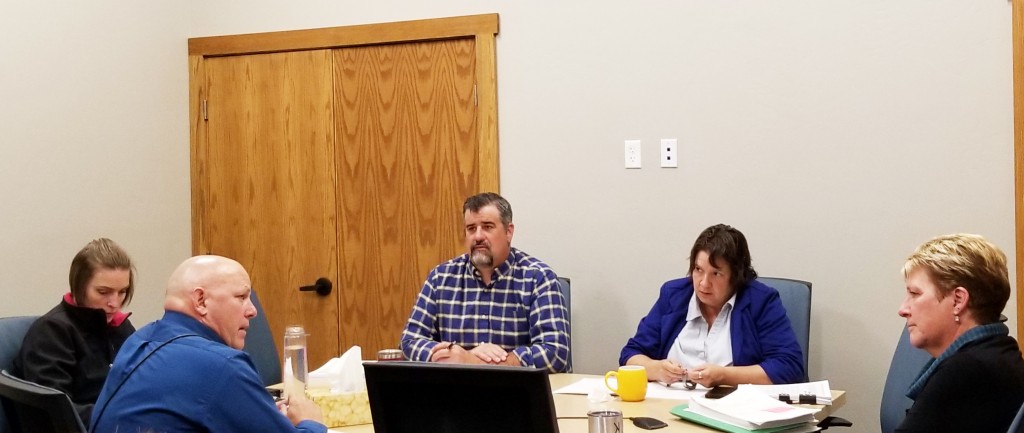Mineral County discusses new emergency programs

CREEDE- Mineral County Commissioners welcomed emergency manager Terry Wetherill to their meeting Monday, Oct. 7, to discuss the future of some of the programs within the department and the possibility of grant funding for emergency services. In a previous meeting, Wetherill spoke to commissioners about a grant that could potentially help pay for electric generators to be purchased for use during a power outage emergency.
Wetherill attended two webinars to learn more about the grant offered through FEMA and stated that it didn’t look like the grant would accommodate the purchase of generators. “I am still looking into the grant to see if it can help us, but as of right now, it doesn’t seem they are in support of purchasing generators. I am going to keep working on it though and will keep you posted.”
The other topic of discussion pertained to crisis support and response for local emergency service team members. Wetherill began by explaining that the type of people who work in emergency services in the area tend to be of stronger character than most. Explaining that having counseling after a traumatic event could be difficult to complete when the people coming to offer the help come from a different area.
“I am not saying that the people in crisis support aren’t here to help. I am just saying we tend to be a tad tougher to get to share our feelings than other people. We are, simply, mountain people. We respond to situations that can be traumatic differently. Our crew members suffer the same. They just handle it differently. So, it is my hope to create a type of crisis support to fit our local emergency personnel better,” said Wetherill.
Wetherill recently attended a training where he learned about the fundamentals of crisis support for emergency personnel and how he may be able to receive further training in order to be able to offer support to the personnel in Creede and even the Valley. “I just want to do something that will help move the process along. PTSD (Post Traumatic Stress Syndrome) is a condition that develops much later after an incident that mentally injures a person who responded. The training I attended offered some insight into beginning the crisis support within hours after the event, a kind of debriefing if you will,” said Wetherill.
Commissioners were in full support of Wetherill’s idea and said that they would help in any way they could to ensure that emergency personnel received the help they needed.
Next Wetherill gave an update on an emergency operation that was performed at the Creede School. He stated that they did a practice lock out without giving future notice. “We have some work to do but the school seemed more responsive to using the ALICE protocol.”
ALICE or Active Shooter Response Training is a procedure many schools have adopted in recent years. According to a description of the protocol it states, “ALICE (Alert, Lockdown, Inform, Counter, Evacuate) training instructor led classes provide preparation and a plan for individuals and organizations on how to more proactively handle the threat of an aggressive intruder or active shooter event. Whether it is an attack by an individual person, or by an international group of professionals, an intent on conveying a political message through violence, ALICE Training option-based tactics have become the accepted response, versus the traditional ‘lockdown only’ approach. Protection and safety must be the priority in an Active Shooter event or Terrorist Attack. Circumstantial and operational concerns vary in every new situation. ALICE Training provides options and classes that address the unique challenges specific to Police/LE, K-12 Schools, health care Facilities, Higher Education, Businesses, Government and Houses of Worship.”
Wetherill finished by stating that he planned on continuing work with the school for emergency preparedness.



